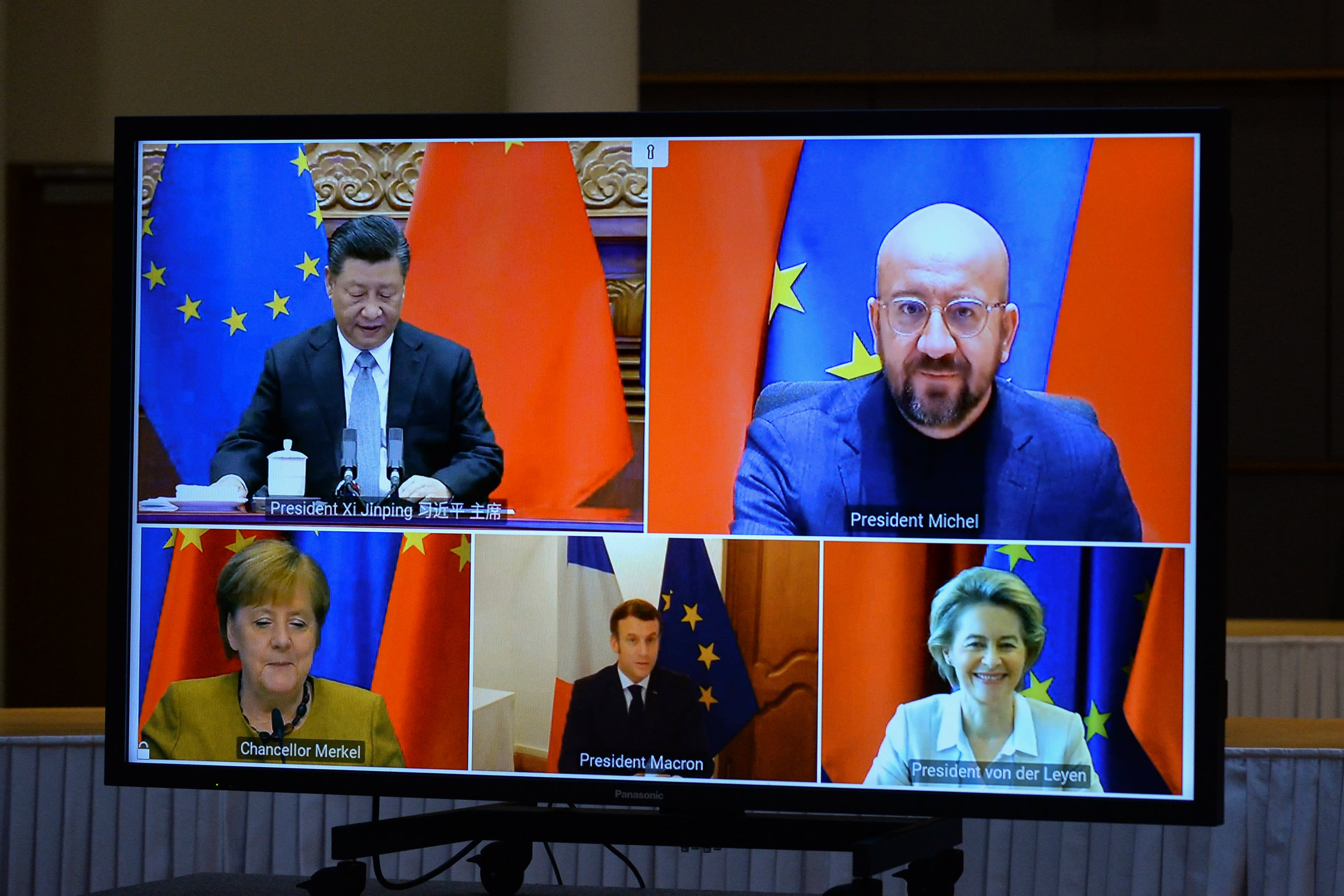
BEIJING — Rising pressure from major global powers is giving the Chinese government more opportunities to show off its new approach to international affairs.
In the first coordinated action by Western nations since U.S. President Joe Biden took office, the U.S., EU, U.K. and Canada imposed sanctions on Chinese officials on Monday. The countries cited human rights abuses in the Xinjiang region of China — accusations Beijing has repeatedly denied.
China’s Ministry of Foreign Affairs quickly responded with its own broad list of sanctions on EU entities and individuals. These people and their families will not be able to enter mainland China, Hong Kong or Macao, and associated companies and institutions will be restricted from doing business with China, according to the ministry.
The level of detail regarding consequences as laid out in these sanctions and ones announced just as Biden was being sworn in is different from more vague sanctions in the past, pointed out Nick Turner, a Hong Kong-based of counsel with law firm Steptoe & Johnson. His topic coverage includes economic sanctions.
“It demonstrates the natural course of evolution for a major power,” Turner said. “We could frame this in terms of only reactions to the West, but … I think this is a natural course of development.”
China has grown into the world’s second-largest economy in the last two decades. Its leader President Xi Jinping has abolished term limits and pushed for greater control domestically, while allowing the development of a more aggressively-toned diplomatic voice. In July, the foreign ministry also established the Xi Jinping Thought on Diplomacy research center in Beijing.
And during an annual parliamentary meeting earlier this month, China announced it will advance legislation in foreign affairs, including countermeasures for sanctions.
Robert Daly, director of the Kissinger Institute on China and the United States, said that in retaliation to the latest sanctions, Beijing could announce similar restrictions on individuals from Canada, U.K. and the U.S.
“You’ll notice that under Xi Jinping it’s become a signature diplomatic move that China will mirror and amplify whatever is done to it, in the way of sanctions,” Daly said on CNBC’s “Street Signs Asia” Tuesday.
— CNBC’s Yen Nee Lee contributed to this report.




